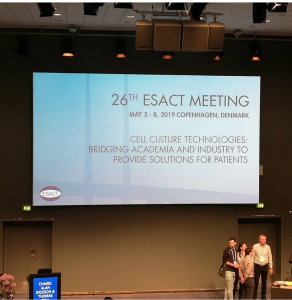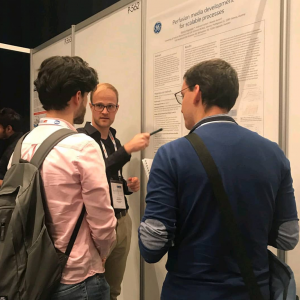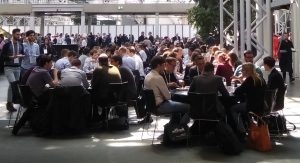ESACT stands for ‘European Society for Animal Cell Technology’ and “brings together scientists, engineers and other specialists working with animal cells to promote dialogue and scientific development”.
This year’s ESACT meeting was held in Copenhagen, Denmark from May 5 to 8. SYSBIOTECH attended the meeting.
The main topics covered at ESACT 2019 were as follows:
Mass screening of cell lines.
Reducing the time to create and select the best clones and improve the accuracy of predicting the behavior of the strain during cultivation in a pilot bioreactor. Primary screening is carried out in 384 and 96-well plates. Even single cells are cultivated. Culture is analyzed at the stage of 36 cells.
The main problem of mass screening is that cultivation conditions in such small volumes are very different from those in the production bioreactor. To overcome this gap, drug manufacturers use automated systems like Ambr15, which give more reliable results than tablets, but still at the stage of process optimization in a 20-30-liter bioreactor there are unpleasant surprises.
Selection of the optimal composition of the culture medium.
On the one hand, the medium must be commercially available, with a fully defined chemical composition and not contain animal proteins, and on the other hand, each pharmaceutical company is looking for certain components that, when added to the medium, will favorably affect the yield of the target substance. These components, as well as their number in the final environment, are a trade secret. Special media for cell cultures are offered by companies such as Xell and UGA Biopharma
Strain design and cultivation parameters adjustment in silico.
Such companies as DataHow and EveTechnologies help pharmaceutical manufacturers to reduce the number of real experiments (from 100 to 15) and thereby accelerate the development of a new drug. The accuracy of computer simulation is quite high, but the companies’ reluctance to put their data into open access slows down the process. Well, you can understand them too.
Perfusion cultivation in various volumes
(from 96-well plates to industrial bioreactors 1000-2000 l).
Very successful in terms of product titer and quality is short pefusion (15 days). Several talks prove this cultivation scheme right.
Many (I’d better say ‘most’) talks were dedicated to the CHO cells. Various strains of CHO are the main producers of therapeutic proteins.
Scientists are looking for the new methods of mAb purification (alternative to chromatography). One of the talks was devoted to mAb purification on magnetic beads. The experiment was conducted in Sweden. Magnetic beads were provided by Swedish company Lab on a Bead. The particles’ matrix is made of agarose, “impregnated” with ferromagnetic and protein A. The particles can be used up to 20 times. mAb yield was close to the traditional chromatographic method of purification.
17 May 2019











